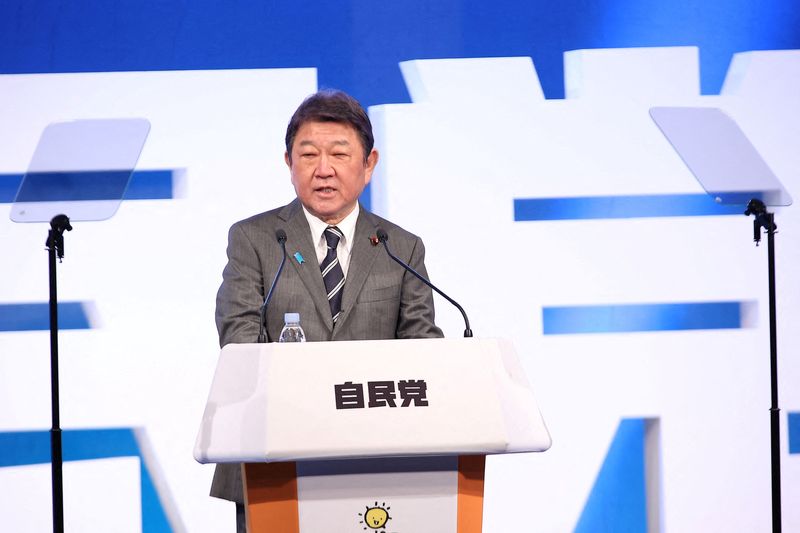By Leika Kihara
TOKYO (Reuters) - The Bank of Japan should more clearly indicate its resolve to normalise monetary policy, including through steady interest rate hikes, senior ruling party official Toshimitsu Motegi was quoted as saying by the Nikkei newspaper on Monday.
"Excessive yen declines are clearly negative for Japan's economy," Motegi, who is secretary-general of the ruling Liberal Democratic Party, was cited as saying by Nikkei.
To arrest such unwelcome yen falls, the BOJ should clearly communicate its intention to shift away from massive stimulus, Motegi said.
He also said Japanese firms can probably swallow the impact of tighter monetary policy, Nikkei reported.
The remarks came ahead of the BOJ's two-day policy meeting that ends on July 31, when the board will likely debate whether to raise interest rates from current near-zero levels.
They also follow last week's comments by Prime Minister Fumio Kishida that the BOJ's policy normalisation would support Japan's transition to a growth-driven economy.
Many economists expect the BOJ to hike interest rates to 0.25% this year, though they are divided on whether that will happen this month or later.
At the July meeting, the BOJ is scheduled to announce a detailed plan for tapering its huge bond buying and scaling back a $5 trillion balance sheet. A rate hike in July could cause a huge market reaction if accompanied by a big taper plan, analysts say.
The weak yen has been a headache for Japanese policymakers as it hurts consumption by pushing up the cost of raw materials and fuel imports.

The government is suspected of having intervened in the currency market to prop up the yen this month, which could pile pressure on the BOJ to do its part to slow the currency's fall, such as by dropping more hawkish signals, some analysts say.
The BOJ ended negative interest rates and bond yield control in March, a landmark shift away from a decade-long radical stimulus programme. But the decision has failed to reverse the yen's downtrend, as markets are focusing on the still-wide interest rate differential between Japan and the United States.